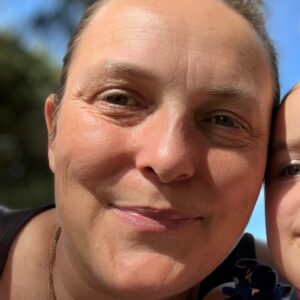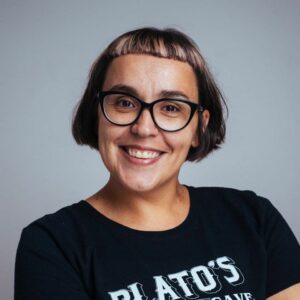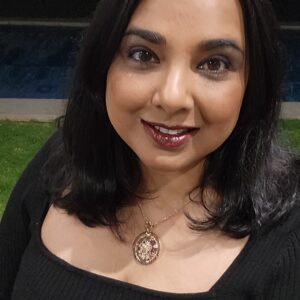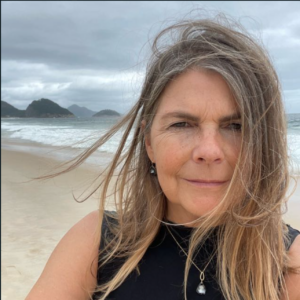Bonnie Zuidland (Australia) is a secondary school teacher, primarily teaching senior philosophy. She is also a long standing member of VAPS (Victorian Association for Philosophy in Schools) supporting P4wC training, conferences and other projects. She has co-authored resources for teaching and implementing the Ethical Capabilities (Victorian Curriculum) as well as develop teacher training programs for VAPS.
Member Category: Executive Committee
Joana Rita Sousa
Joana Rita Sousa (Portugal) is a freelancer philosopher and a questionlogist working in #P4wC since 2008. With a MSc in Philosophy for Children and #P4wC certifications from different organizations, Joana Rita is committed to develop communities of philosophical inquiry with children, teenagers and adults in different contexts. Since 2008 Joana Rita has been running a project called filocriatividade that allows her to travel and to run workshops and train teachers and educators in philosophy for/ with children in different places.
Sumaya Babamia
Sumaya Babamia (South Africa) is a P4wC practitioner and researcher. Her engagement with P4wC spans conferences, training programmes, publications, and philosophical enquiries with under-resourced communities in Johannesburg. Sumaya trained as a speech-language therapist, and has a special interest in early childhood disability, education, and intervention. Her work focuses on transdisciplinary teaching and learning practices across the fields of disability and education. Her doctoral research looks at the intersection of P4C with autistic children using a posthumanist praxis.
Marina Santi
Marina Santi (Italy) holds a PhD in Educational Sciences and is Full Professor in Didactics and Inclusive Education. She works in the Department of Philosophy, Sociology, Pedagogy and Applied Psychology at University of Padova, Italy. Her research deals with dialogue and argumentation concerning knowledge construction processes and the investigation of social interaction as cognitive potential for learning. She specializes in classroom discussion both as method and context for the development of higher-order thinking skills and reflective capabilities. She is an expert on “Philosophy for Children”, a subject into which she has carried out a wide range of empirical research to evaluate the effectiveness of philosophical practice within communities of inquiry for the development of critical, creative and caring thinking and the construction of inclusive social environments. Her recent studies focus on improvisation teaching and learning. Among her main publications: with Stefano Oliverio (eds.) (2012), Educating for Complex Thinking through Philosophical Inquiry. Models, advances and proposals for the new millennium, Napoli, Liguori; (2010) (Ed.), Improvisation Between Technique and Spontaneity, Cambridge Scholar Publisher; with ZORZI E. (2016) (Eds.), Education as Jazz. Interdisciplinary Sketches on a New Metaphor. New Castle: Cambridge Scholar Publishing.





